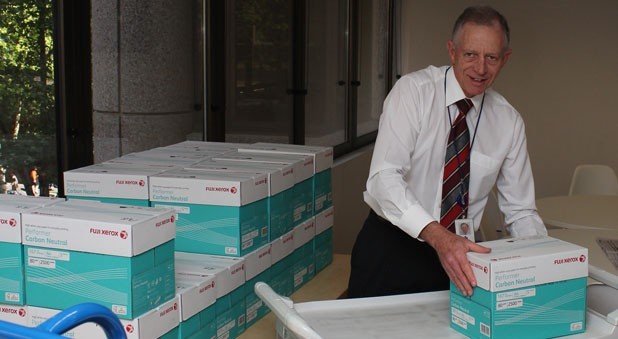The 2013 Synod, due to start on Monday 14th of October, will step up the process of gradual change from a reliance on paper to electronic documentation.
The meeting has been shortened to just three days because delegates already met in August for the Archbishop’s election.
Even with a shorter meeting, the delegates will still be getting through a lot of paperwork and Diocesan Secretary Robert Wicks says “The first stage is to make some obvious cost savings by maximising the use of email as a means of distributing Synod material in electronic form and then longer term we will be looking for Synod’s direction on how much paper we should distribute, recognising the practical limitations of purely electronic communication.”
This year’s Synod book and supplementary documentation already runs to more than 330 pages, which Mr Wicks says is fairly modest compared to previous years.
As well as the usual budget bills, this year’s Synod is to consider a governance policy for diocesan organisations which has been more than three years in the making.
The 2010 Synod received a draft governance policy which was the subject of feedback in 2011 and substantially revised for presentation this year.
The revision included aligning the policy with the governance standards promoted by the Australian Charities and Not-for-profits Commission (ACNC).
The policy covers board members of diocesan organisations elected by Synod. It gives guidance on responsibilities, accountability and transparency, the personal faith and members, suitability and skill sets, as well as the composition and balance of board membership. The policy would also limit the tenure of chairs and members of boards to nine consecutive years in the case of chairs and 14 years for ordinary board members.
Synod will have to decide whether all members of diocesan school councils should be required to sign a statement of personal faith before being eligible for election or appointment to the council. The Policy is drafted to accommodate an alternative declaration of support for the Christian ethos of the school council which may be signed by alumni elected members as an alternative to the statement of personal faith but Synod may change that to require a faith statement.
Other matters the Synod will examine include a report on church planting in greenfields areas and progress towards a new diocesan mission.
Photo: Martin Thearle from the Sydney Diocesan Secretariat with the mound of paper used for Synod communication.




















